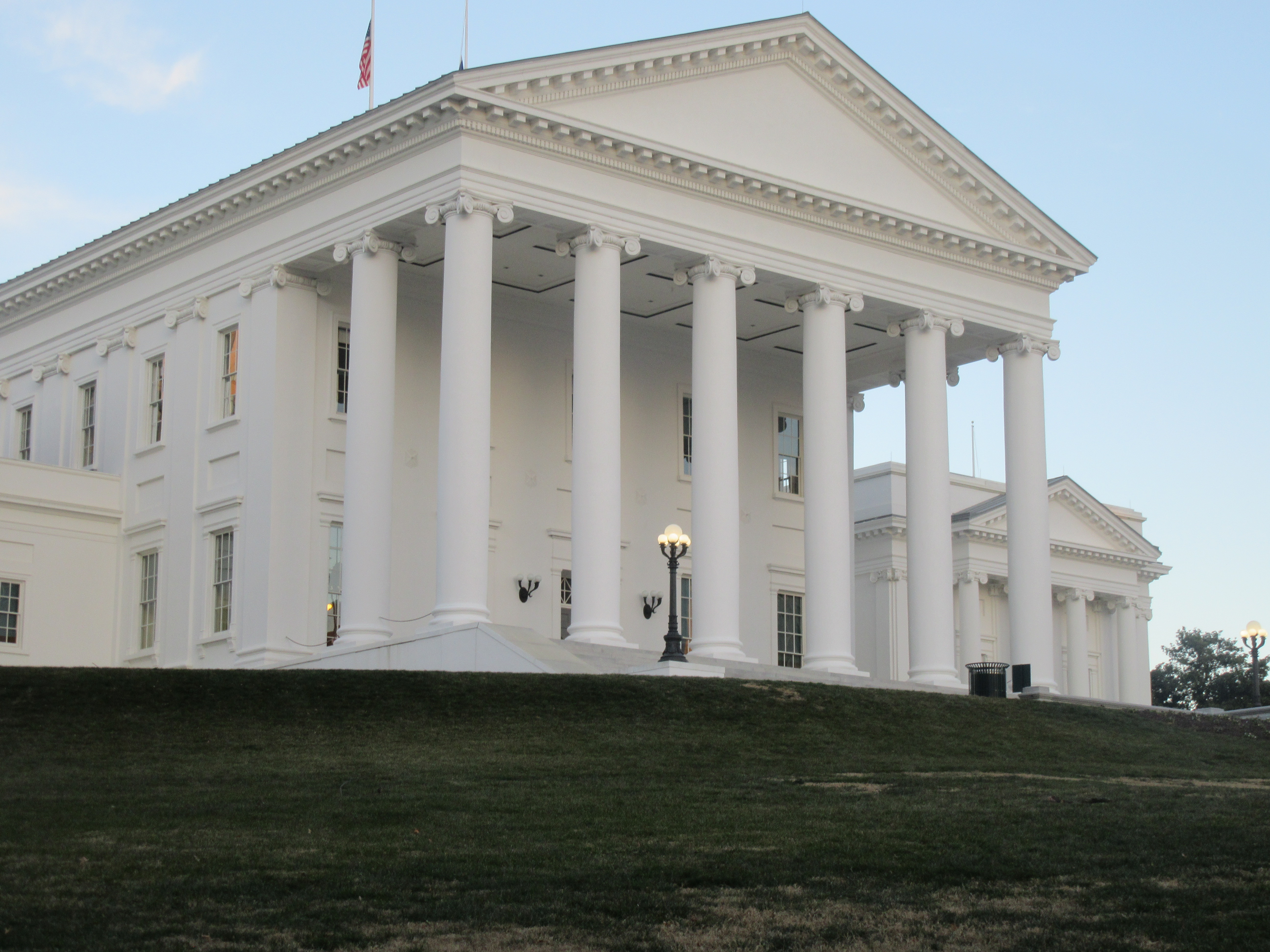Mark Sickles, a Fairfax County member of the Virginia House of Delegates, sees his job as problem solving. And the problems never stop rolling in.
On one recent Wednesday morning in Richmond in a little over two hours, Delegate Sickles met with a steady stream of professional and citizen lobbyists in eight back-to-back meetings. In mid-morning, he ran downstairs and snarfed up a cake slice to celebrate state Senator Louise Lucas’s 81st birthday, amid a swarm of solicitous lobbyists. He had started his day at 7 a.m. at House Speaker Don Scott’s prayer breakfast.
First up in his office was Allan Coukell, Chief of Governmental Affairs for Civica, a pharmaceutical company with
Next came a team from Children’s National Hospital. They supported a bill to bar baby food that has toxic heavy metals exceeding Food and Drug Administration limits and a bill requiring school districts, using federal funds, to provide breakfast and lunch to students at no cost. Dr. Danielle Dooley argued that healthy nourishment enhances learning. Sickles responded, “Thank you for taking care of our children.” In 2024, Children’s National provided care to 45,000 children in eight Virginia localities, including Fairfax and Arlington counties, Dooley said.
Meeting three: Lifepoint Care hospital officials from the southwest Virginia town of Richlands advocated for rural hospitals, noting that rural people often travel long distances to get care. When Sickles asked, “What is your hardest job?” they answered, “Recruiting and retaining staff,” so they partner with high schools and community colleges to create a pipeline of future employees.
Next up: Hospital pharmacists seeking more authority to compound medications and distribute them within their health system, one way of addressing drug shortages, they contended. “It’s common sense,” Sickles commented.
The lobbyists kept coming. Virginia Association of State Parks representatives advocated for more state parks funding and opposed locating data centers near parks. “They should be in industrial parks,” said Sickles.
In between meetings, unscheduled, Sickles accepted a flashlight from the Virginia Health Care Foundation.
Meeting six: Equifax officials opposed legislation requiring the state to competitively bid their service, now used by the state, that verifies income eligibility for state programs.
Next group: Muslims for Just Futures. Among several issues, they promoted fee-based lending, an alternative to traditional interest-bearing lending practices that conflict with Islamic law. The group also advocated for affordable housing on faith-based properties.
Finally, as the daily, 11 a.m. Democratic Caucus meeting neared, in came emergency dispatchers seeking eligibility in the state’s disability and retirement system. Sickles sympathized and then headed for the tunnel to the Capitol building.
In the 14-story General Assembly building, the halls, café and elevators seem to teem with lobbyists. “Lobbying is a thriving industry,” Sickle quipped.
‘The House Floor’
The House of Delegates convenes daily at noon. Delegates first announce constituents observing from the gallery. Then, they grind through parliamentary arcana, steps mysterious to the average person, like the third reading on the uncontested calendar, considering the committee substitute and engrossing the bill.
Afternoons are often consumed with committee hearings and votes, for Sickles, the Appropriations Committee, what to fund or not, from colleges to railroads to civil aviation. More lobbyists make their passionate pitches.
The delegate’s evenings involve preparing for the next day, meeting with more constituents and lobbyists and attending lobbyists’ receptions. He typically finishes around 9 or 10 p.m.
Why does he do this? “If you’re curious about how things work, this is the place to be,” he says. “The more you learn, the more you need to learn.” It’s all about public service, not a lucrative pursuit. Delegates are paid $17,600 a year.
But it does inspire awe. The House of Delegates is 405 years old, dating back to the colonial House of Burgesses. Sickles offered, “When you return after a long absence, you feel a sense of history and realize you are a very small part of it.”
Committees and Accomplishments
Now in his 22nd year representing part of eastern Fairfax County, Del. Mark Sickles has carved out a specialty in health care. He chairs the Health and Human Services Committee and the Appropriations Subcommittee on Health and Human Resources. He also serves on the Privileges and Elections Committee and the Rules Committee.
He counts among his top accomplishments three initiatives. One bill, now law, bars a hospital from charging a patient more than the insurance plan covers, other than the patient’s co-payment and deductible. Another would make drug pricing more transparent by requiring all links in the drug chain, from the manufacturer to the pharmacy, to report drug prices and by requiring the state to publish the prices annually. To implement the federal Affordable Care Act, he successfully created a state health insurance “exchange” or agency for uninsured people to buy insurance, an alternative to using a federal entity.
Sickles is originally from Arlington and worked for 18 years for Weeks Marine, a marine services company. Today, when not doing his delegate work, he works with Moran Global Strategies on federal legislation.
Information
Mark Sickles, https://marksickles.com/
General Assembly, https://virginiageneralassembly.gov